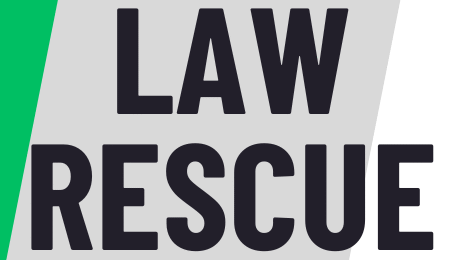Are you a property owner or renter facing a dispute that needs expert legal help?
Having a legal advocate can change everything. They help enforce lease terms or protect your rights.
Disputes between landlords and tenants can pop up anytime. The world of landlord-tenant laws is complex. A property law expert can solve these problems quickly.
Comprehending Landlord-Tenant Legislation in the United States
It’s important for landlords and tenants to know the laws about renting. These laws cover what each side can expect and what they must do. They change a lot from one place to another.
State vs. Federal Regulations
Most of the time, these laws come from the states. But, there are some federal rules too. For example, there are laws about not discriminating and keeping places safe from harmful things. A landlord rights lawyer or tenant rights attorney needs to know both state and federal laws well.
Key Areas of Landlord-Tenant Law
Important topics include the lease, how to get someone out, and what happens to deposits.
Lease Agreements and Contracts
Leases spell out the deal, like how much to pay, how long, and who does what.
Eviction Procedures
Getting someone out is different in every state. It’s often very strict and needs a lawyer, especially an eviction lawyer.
Security Deposits and Rent Control
Deposits are watched over to keep tenants safe from unfair practices. Rent control laws also help by setting limits on how much rent can go up.
Recent Legal Changes Affecting Landlords and Tenants
There have been big changes in the laws lately. For example, rules about evictions and rent have shifted. It’s key for both sides to keep up with these changes to understand their rights and duties.
When to Hire an Attorney for Landlord Tenant Laws
Whether you’re a landlord or tenant, knowing when to hire an attorney is key. Landlord-tenant laws are complex and change by state. This makes legal help very important in disputes.
Situations Requiring Legal Representation for Landlords
Landlords often need legal advice in many situations. These include:
- Eviction Proceedings: Navigating the legal process to remove a tenant.
- Property Damage Disputes: Seeking compensation for damages caused by tenants.
- Lease Violations: Addressing breaches of lease agreements.
Consulting a rental dispute attorney helps landlords understand their rights and the best steps to take.
Scenarios Where Tenants Need Legal Help
Tenants also face situations where legal help is crucial:
- Wrongful Evictions: Fighting against unlawful eviction attempts.
- Habitability Issues: Ensuring landlords maintain a safe and livable environment.
- Discrimination Claims: Addressing alleged discrimination by landlords.
A lease agreement attorney can guide tenants on protecting their rights.
Preventative Legal Consultation Benefits
Both landlords and tenants can benefit from legal consultations before problems start. Knowing your rights and obligations can prevent costly disputes. Talking to an attorney before signing a lease or during disputes can offer clarity and strategic advice. This helps solve issues efficiently.
Types of Attorneys Specializing in Landlord-Tenant Matters
Dealing with landlord-tenant law needs special legal help. Whether you’re a landlord or tenant, you need someone who knows the rental property laws well. The right lawyer can help solve disputes and protect your rights.
Landlord Rights Lawyers
Landlord rights lawyers help property owners in disputes with tenants. They know the laws about rental agreements, evictions, and property damage. They can guide you through evicting a bad tenant or fixing property issues.
For example, they can make sure your lease agreements follow the law. This protects your rights as a property owner.
Tenant Rights Attorneys
Tenant rights attorneys protect renters’ interests. They know about laws on habitability, security deposits, and fair evictions. If you’re having problems with your landlord, they can help.
They’ll explain your rights and help you take action. This can include fixing maintenance issues or fighting unfair evictions.
Eviction and Lease Dispute Specialists
Eviction and lease dispute specialists focus on eviction and lease issues. They help both landlords and tenants in court. They’re experts in the law and can fight for your rights.
Whether you want to evict a tenant or fight an eviction notice, they can help. They know how to handle the legal side of things.
| Type of Attorney | Specialization | Services |
|---|---|---|
| Landlord Rights Lawyers | Representing property owners in disputes | Drafting lease agreements, eviction proceedings, property damage disputes |
| Tenant Rights Attorneys | Protecting tenant interests | Habitability issues, security deposit disputes, wrongful eviction defense |
| Eviction and Lease Dispute Specialists | Eviction proceedings and lease disputes | Representing landlords and tenants in court, resolving disputes |
Essential Qualifications to Look for in a Landlord-Tenant Attorney
To deal with landlord-tenant laws, you need a skilled attorney. Look for certain qualities to find the right lawyer for you.
Relevant Experience and Specialization
An experienced landlord-tenant lawyer is your best bet. They should have handled cases like yours. Specialization in landlord-tenant law means they know the latest legal details.
State Bar Certification and Credentials
Make sure your lawyer is certified by the state bar. This shows they meet the state’s legal standards.
Track Record of Success in Similar Cases
A lawyer’s success in similar cases matters. Check their past results to see if they’re effective.
Case Outcomes and Settlements
Look at your lawyer’s past cases and results. Success in getting good settlements or court wins is a plus.
Client Testimonials
Client feedback can tell you a lot. Check out what past clients say to see if they’re happy with their lawyer.
| Qualification | Description | Importance |
|---|---|---|
| Relevant Experience | Extensive experience in landlord-tenant law | High |
| State Bar Certification | Certified by the state bar association | High |
| Track Record of Success | History of successful case outcomes and settlements | High |
| Client Testimonials | Positive reviews from previous clients | Medium |
By looking for these key qualifications, you can find a good landlord-tenant lawyer. They will help protect your rights.
How to Find an Attorney for Landlord Tenant Laws Near Me
Finding a good landlord-tenant attorney is key. There are many places to look for the right one.
Online Legal Directories and Resources
The internet is full of info for finding a landlord-tenant attorney. Use online legal directories to find experts in landlord-tenant laws.
Avvo, Martindale-Hubbell, and FindLaw
Websites like Avvo, Martindale-Hubbell, and FindLaw list many attorneys. They show who specializes in landlord-tenant law and what clients say. These sites help you find the right attorney.
Legal Aid Websites
If you can’t afford a lawyer, legal aid websites can help. They offer free or low-cost legal services.
Referrals from Real Estate Professionals
Real estate agents and property managers can give great referrals. They know who’s good and can recommend the best attorney for you.
| Referral Source | Benefits |
|---|---|
| Real Estate Agents | Firsthand experience with attorneys, local knowledge |
| Property Managers | Insights into attorneys’ handling of landlord-tenant disputes |
Local Bar Association Referral Services
Local bar associations have referral services. They can connect you with attorneys who know landlord-tenant law. You’ll get a list of qualified lawyers in your area.
Researching Reviews and Testimonials
After getting a list of attorneys, check their reputation. Look for reviews and testimonials from past clients. This shows how satisfied they were and if the attorney was effective.
By using these resources and doing your research, you can find a great landlord-tenant attorney. They will help you understand and deal with landlord-tenant laws.
Evaluating Attorney Expertise in Landlord-Tenant Law
Finding the right attorney for landlord-tenant law is key. A property law expert with lots of experience in lease agreements can greatly help your case.
Assessing Case History and Specialization
Start by looking at an attorney’s case history and focus on landlord-tenant law. Choose a lease agreement attorney with a good track record in cases like yours. Ask them about their experience in local housing courts and their knowledge of laws.
Understanding Their Knowledge of Local Housing Courts
An attorney’s knowledge of local housing courts is very important. They should know the court procedures, judges, and other attorneys. This helps them plan the best strategy for your case.
Verifying Professional Affiliations and Continuing Education
Check if an attorney is part of professional organizations like the American Bar Association. Being part of these groups shows they keep up with legal changes.
| Criteria | Description | Importance |
|---|---|---|
| Case History | Experience in handling similar landlord-tenant cases | High |
| Knowledge of Local Housing Courts | Familiarity with local court procedures and judges | High |
| Continuing Education | Participation in ongoing legal education relevant to landlord-tenant law | Medium |

By carefully checking an attorney’s expertise in landlord-tenant law, you can get the best legal help. This ensures a good outcome for your case.
Questions to Ask During Your Initial Consultation
Before you meet with an attorney, make a list of questions. This first meeting is your chance to see if they’re right for you. You’ll learn if they know a lot about landlord-tenant laws.
Experience with Your Specific Legal Issue
Find out if the attorney has dealt with cases like yours. For example, if you’re facing an eviction, ask if they’re an eviction lawyer. Knowing their experience can make you feel more confident.
Communication Style and Availability
It’s important to know how the attorney talks to clients and how available they are. Ask how they’ll keep you updated and how fast they’ll answer your questions.
Case Strategy and Timeline Questions
Talking about your case’s strategy and timeline is key. You want to know the possible outcomes, legal steps, and how long it might take.
Potential Outcomes
Ask about the possible results of your case. This includes both good and bad outcomes. It helps you prepare for what’s coming.
Legal Approaches
Ask the attorney to explain their legal plan and steps to solve your issue. Knowing their strategy can make you feel more confident in their help.
Expected Duration
Lastly, talk about how long your case might take. Knowing the timeline helps you plan better.
By asking these questions, you can see if the attorney is right for you. They should understand your needs and have the right experience.
Understanding Attorney Fee Structures for Landlord-Tenant Cases
Attorney fees for landlord-tenant cases can vary a lot. It’s key to know the different fee structures to make smart choices. When dealing with rental property disputes, knowing how attorneys charge can help you manage your case better.
Hourly Rates vs. Flat Fees
Attorneys can charge by the hour or a flat fee. Hourly rates mean you pay for the time worked on your case. This is good for long or complex cases. Flat fees are a one-time payment for a service, like a lease agreement or an eviction.

10 Tips Before Choosing the Right Lawyer in the US
Contingency Fee Arrangements
Some attorneys offer contingency fee arrangements. You only pay if you win your case or get a settlement. This type of fee is great for cases with big payouts.
Additional Costs and Expenses to Anticipate
There are costs beyond attorney fees in landlord-tenant cases. Knowing these can help avoid surprise expenses.
Court Filing Fees
Court filing fees are court charges for starting or responding to a lawsuit. These fees change based on the court and case type.
Expert Witness Costs
Expert witness costs might be needed for your case. These are for professionals like appraisers or contractors who testify or analyze your case.
Document Preparation Charges
Document preparation charges cover legal document costs. These can add up, especially in complex cases with many documents.
Knowing these fee structures and costs helps you choose the right landlord rights lawyer or tenant rights attorney. It ensures you get the legal help you need while keeping costs in check.
The Process of Hiring and Retaining Your Attorney
Finding the right attorney for landlord-tenant laws is crucial. It’s important to know how to choose and keep the right lawyer.
Reviewing and Understanding Retainer Agreements
After picking a rental dispute attorney, you need to look at the retainer agreement. This document explains the terms of your legal help.
Key Contract Terms
Look closely at the contract terms. This includes what work your lawyer will do, how you’ll pay, and any extra costs. Make sure you know how your lawyer will charge you and what expenses you might face.
Scope of Representation
The scope of representation tells you what your lawyer will do. Make sure you know what’s included and what’s not. This avoids any confusion later on.
Setting Clear Expectations and Goals
It’s key to set clear expectations and goals with your lawyer. Talk about your case, what you want to achieve, and any worries you have. This helps your lawyer work best for you.
Always check your lawyer’s bills to avoid being overcharged. Talking openly about fees and costs helps avoid problems and makes the legal process smoother.
Working Effectively with Your Landlord-Tenant Attorney
To get the most out of your landlord-tenant attorney, it’s key to work well together. A good relationship is based on clear talk, respect, and knowing your case well.
Preparing Documentation and Evidence
Give your attorney all important documents and evidence to build a strong case. This includes lease agreements, letters to your landlord or tenant, payment records, and more. Organizing these quickly helps your attorney understand your situation and plan a good strategy.
Maintaining Efficient Communication
Good communication is crucial to keep your case moving. Always answer your attorney’s questions quickly and ask if you’re not sure about something. This keeps things clear and makes sure your attorney has what they need to help you.
Following Legal Advice Appropriately
Your attorney knows a lot about landlord-tenant law and can guide you. It’s important to follow their advice to get the best results. If you’re not sure about something, ask for more information. Working together and following their advice will help you feel confident in the legal process.
Benefits of Specialized Legal Representation in Landlord-Tenant Disputes
Dealing with landlord-tenant laws can be tough. A specialized attorney can really help. They can stop problems early and save everyone time, money, and stress.
Navigating Complex Housing Laws
Landlord-tenant laws change a lot from place to place. An attorney for landlord tenant laws knows these rules well. They can explain your rights and what you must do.
They also know about local housing codes, lease agreements, and how to handle evictions.
| Legal Issue | Benefit of Specialized Representation |
|---|---|
| Lease Disputes | Expert negotiation and mediation |
| Eviction Proceedings | Knowledge of eviction laws and procedures |
| Housing Code Violations | Understanding of local housing codes and compliance |
Negotiation Advantages with Professional Representation
An eviction lawyer can really help in negotiations. They know the law well and can talk to the other side effectively. This can lead to quicker solutions and less stress and cost.
Long-term Legal Protection Strategies
A specialized attorney does more than solve immediate problems. They can also help protect you in the long run. They understand your situation and goals, offering advice to keep legal risks low.
Getting specialized legal help is key to protecting your rights and interests in landlord-tenant disputes.
Red Flags to Watch for When Selecting an Attorney
Choosing the right attorney for landlord-tenant disputes is key. A good landlord rights lawyer or tenant rights attorney can greatly impact your case. But, some signs can show an attorney might not be right for you.
Unrealistic Promises or Guarantees
Watch out for attorneys who promise too much. No lawyer can predict a judge’s decision with certainty. Such claims might show they’re inexperienced or trying to raise your hopes too high.
Poor Communication or Responsiveness
Good communication is essential in working with an attorney. If they don’t respond to your calls or emails, or don’t explain things clearly, it’s a red flag. You need someone who keeps you updated every step of the way.
Lack of Transparency About Fees
A trustworthy attorney will be open about their fees. Be careful of those who don’t clearly explain how they charge. You should know how much you’ll pay and what you get for it.
| Red Flag | Description | Action |
|---|---|---|
| Unrealistic Promises | Attorney guarantees a specific outcome | Be cautious, seek a second opinion |
| Poor Communication | Attorney is unresponsive or unclear | Evaluate their communication style |
| Lack of Transparency | Vague or unclear about fees | Request a detailed fee explanation |

Conclusion: Securing the Right Legal Representation for Your Landlord-Tenant Matters
Finding the right attorney for your landlord-tenant issues is key for a good outcome. A property law expert or rental dispute attorney can help you understand complex laws. They also protect your rights.
Understanding landlord-tenant laws and knowing when to hire an attorney are crucial. Evaluating an attorney’s expertise is also important. By following these steps, you can find a qualified attorney who fits your needs.
Start your search for a “landlord-tenant attorney near me” today. The right legal help can make a big difference. You can handle rental disputes well and get a positive result.
Begin by looking for local attorneys, checking their credentials, and setting up a consultation. This is the first step to discuss your case.
Frequently Asked Questions
What are the essential aspects of landlord-tenant legislation that I should understand?
Key areas are lease agreements, eviction protocols, and security deposits. Furthermore, considerations of habitability are paramount. Understanding these factors might assist you in managing conflicts and adhering to legal regulations.
When is it advisable to engage a landlord-tenant attorney?
Engage an attorney for eviction proceedings, property damage conflicts, or lease infractions. Legal assistance is required for wrongful evictions, habitability concerns, and discrimination allegations. An attorney can effectively advise and represent you.
Which categories of attorneys focus on landlord-tenant issues?
Lawyers specializing in landlord rights, tenant rights, and eviction disputes are available. They possess a comprehensive understanding of housing legislation and can advocate for you proficiently.
What qualities should I seek in a landlord-tenant attorney?
Seek experience, state bar qualification, and a proven track record in like instances. Examine their case outcomes and client testimonials to identify a competent attorney.
What is the method to locate a landlord-tenant attorney in my vicinity?
Consult online directories, inquire with real estate professionals, or reach out to local bar services. Examining reviews aids in identifying a competent attorney.
What inquiries should I pose during my preliminary appointment with a landlord-tenant attorney?
Inquire about their experience regarding your issue, their communication methods, and their strategic approach. Inquire about potential outcomes and their methodology to ensure you are well-informed.
What are the fee structures employed by attorneys for landlord-tenant cases?
They may bill hourly, impose a fixed price, or operate on a contingency basis. Be mindful of additional expenses such as court fees and paperwork preparation.
What advantages are associated with using a specialized landlord-tenant attorney?
A specialized attorney possesses extensive knowledge of housing regulations and is adept at negotiation. They provide enduring legal techniques. Seeking professional assistance promptly can result in a more favorable conclusion.
What warning signs should I be vigilant for when choosing a landlord-tenant attorney?
Exercise caution of implausible assurances, inadequate communication, or ambiguous charges. Conduct thorough research to prevent poor decisions and identify a competent counsel.

